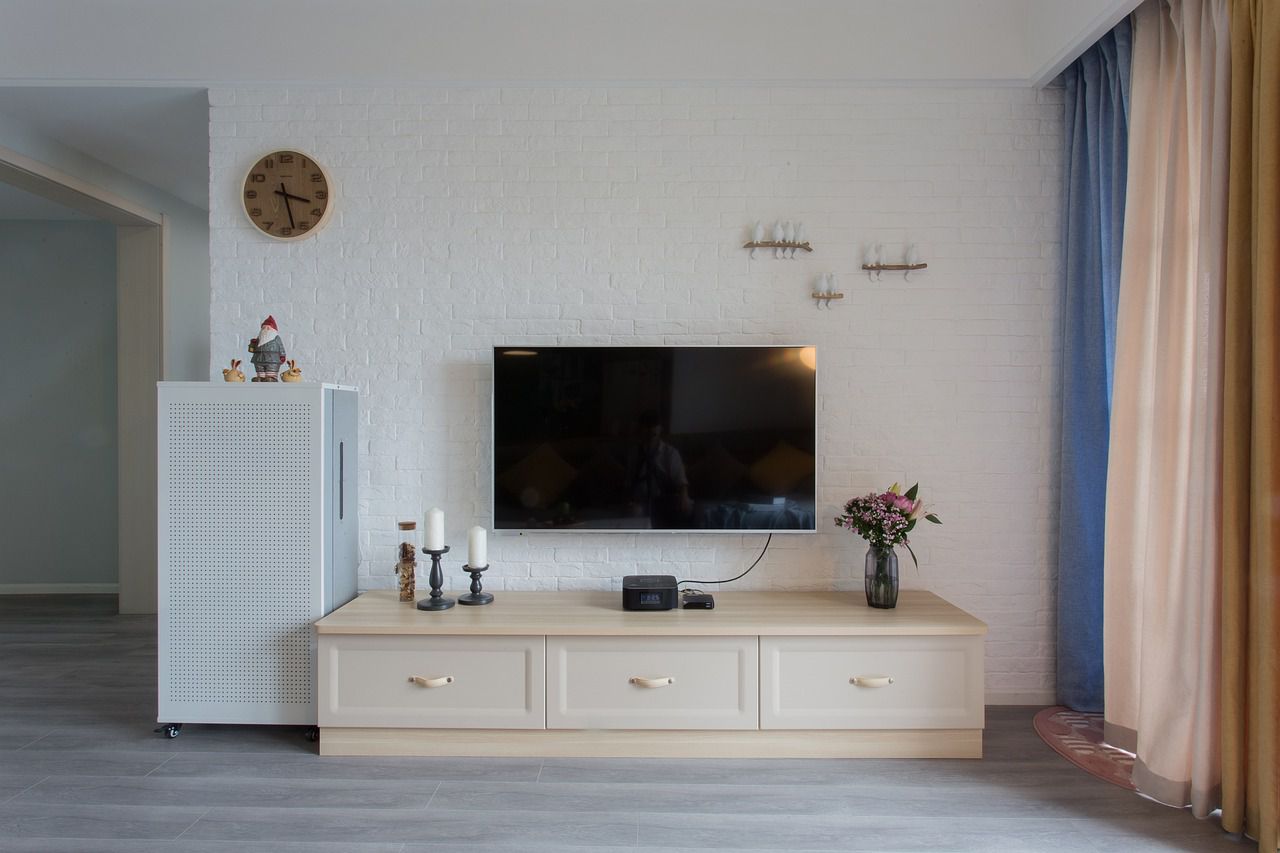Wall-mounted TVs offer several advantages and disadvantages compared to other TV placement options.
Here's a breakdown of the pros and cons of wall-mounted TVs.
Let's start with pros.

Space Saving
Wall-mounted TVs free up valuable floor space, creating a cleaner and more open look in the room.
This is especially beneficial in smaller living spaces.
Aesthetics
Wall-mounted TVs have a sleek and modern appearance that can enhance the overall aesthetics of a room.
They contribute to a minimalist and clutter-free design.
Optimal Viewing Height
When properly mounted at eye level, wall-mounted TVs provide a more comfortable and immersive viewing experience.
This can reduce neck strain and enhance overall enjoyment.
Safety
Wall mounting eliminates the risk of TV stands or cabinets being knocked over, especially in households with young children or pets.
Cable Management
With proper cable management solutions, wall-mounted TVs can achieve a clean and organized look, hiding unsightly cables and wires.
Now, let's talk about cons.
Installation Complexity
Properly mounting a TV on the wall requires careful installation, including drilling into the wall, ensuring proper anchoring, and concealing cables.
It may require some DIY skills or the help of a professional.
Permanent Placement
Once a TV is wall-mounted, its location becomes more fixed.
This could limit your ability to rearrange furniture or room layout in the future.
Cost
Mounting hardware, brackets, and any professional installation services can add to the cost of setting up a wall-mounted TV.
Restricted Viewing Angles
Depending on the wall's position and the TV's tilt capabilities, wall-mounted TVs might have limited viewing angles compared to TVs placed on furniture.












